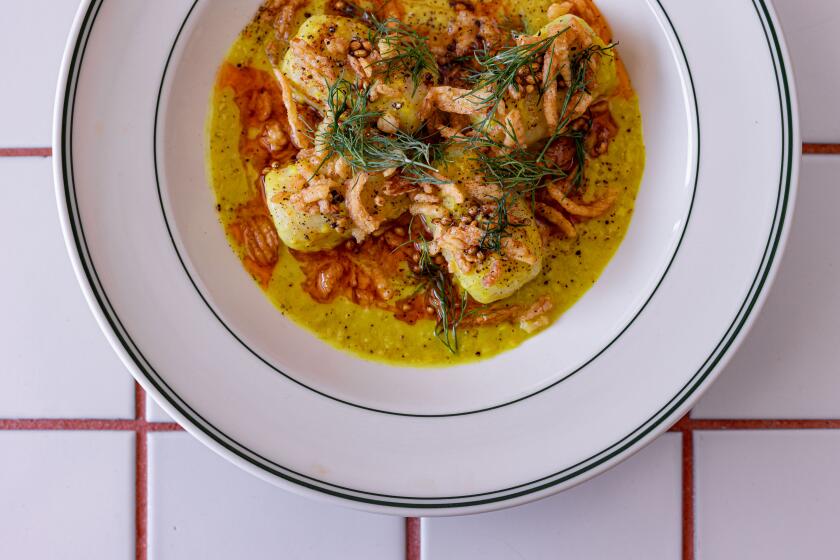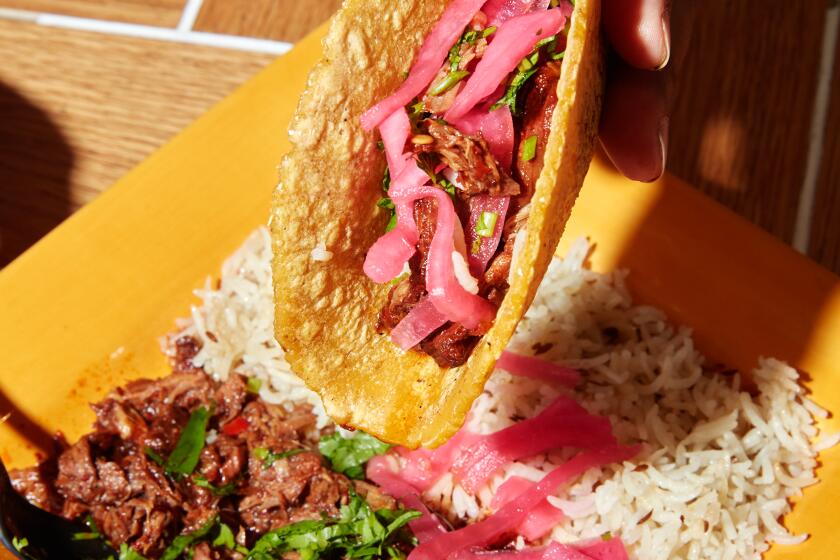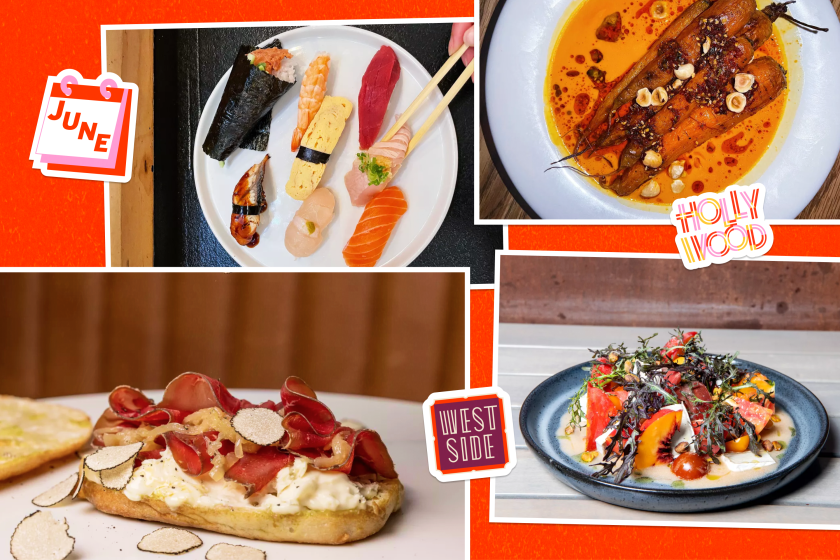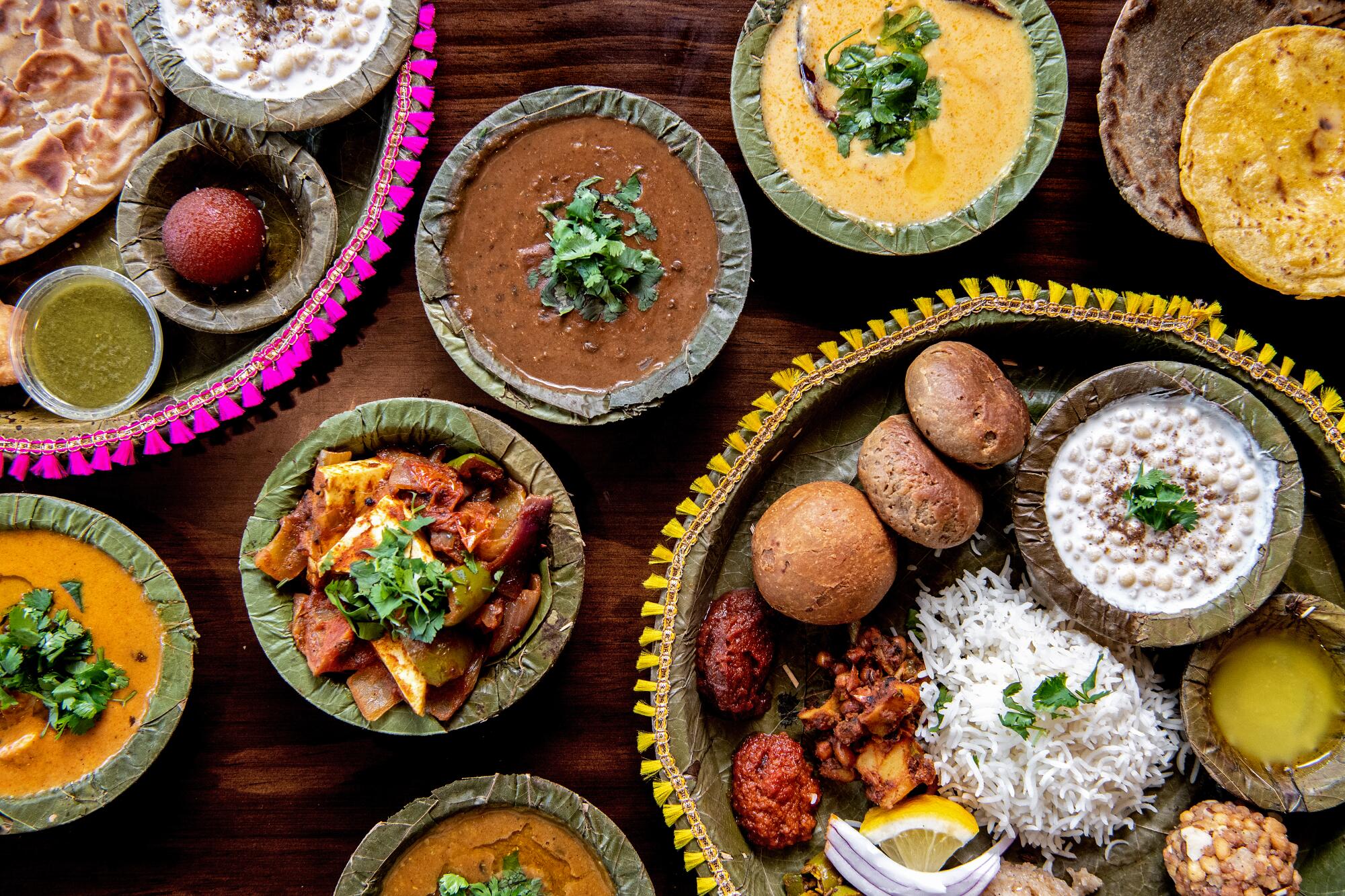
- Share via
When Bhookhe’s narrow dining room in Artesia fills to capacity, which is most of the time during prime lunch and dinner hours, nearly every table has at least one person absorbed in navigating the restaurant’s maharaja thali. Its plates and bowls, covered in crinkly-smooth sal leaves, hold nearly two dozen components. Strategizing ideal bites demands focus.
Many dishes on the thali are windows into the cuisine of Rajasthan. Its sweep of land, much of it lying across the northwestern subcontinent’s Thar Desert, makes it the largest state in India. Chef Pooja Dwivedi and her co-owner husband, Anshul, who primarily oversees service, grew up in or near Jaipur, its architecturally ornate capital.
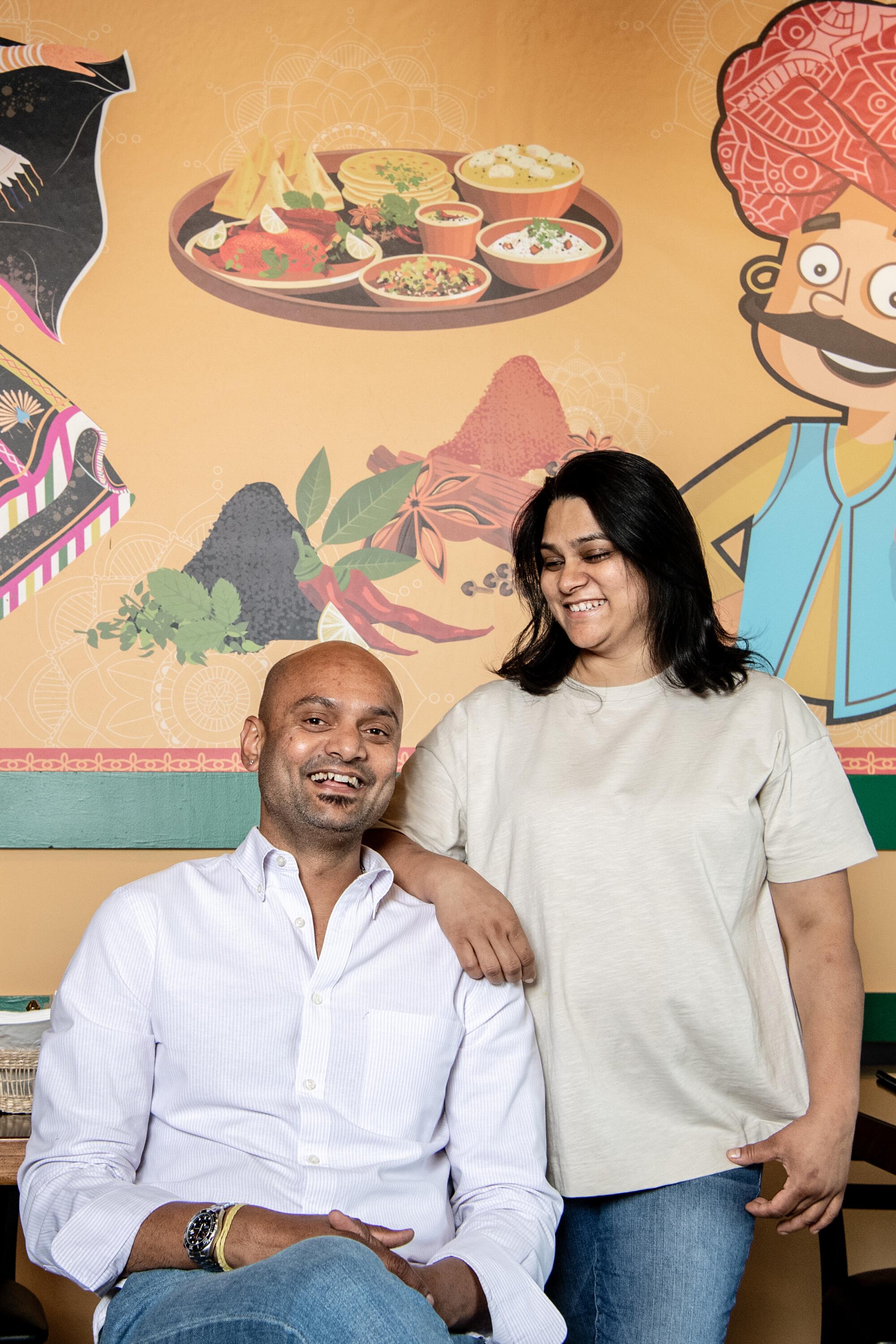
Half a dozen small breads ring the thali. Some are flat rotis made using varied flours, including cornmeal and pearl millet. Others, called bati, are formed into orbs: They arrive plain, for dunking in warm ghee or soupy dal, and also filled with potato masala. Garlicky chutney astringent with kachri, a tiny, wild melon, and green chile pickle ignite spice-freckled vegetables, plain rice and everything else they touch.
To start somewhere deeply soothing, direct your spoon toward gatte ki sabji, soft squares of chickpea dumplings submerged in a yogurt sauce I want to pick up and drink. Turmeric adds its pale sunlight. Coriander, cumin and ginger complicate the yogurt’s tang.
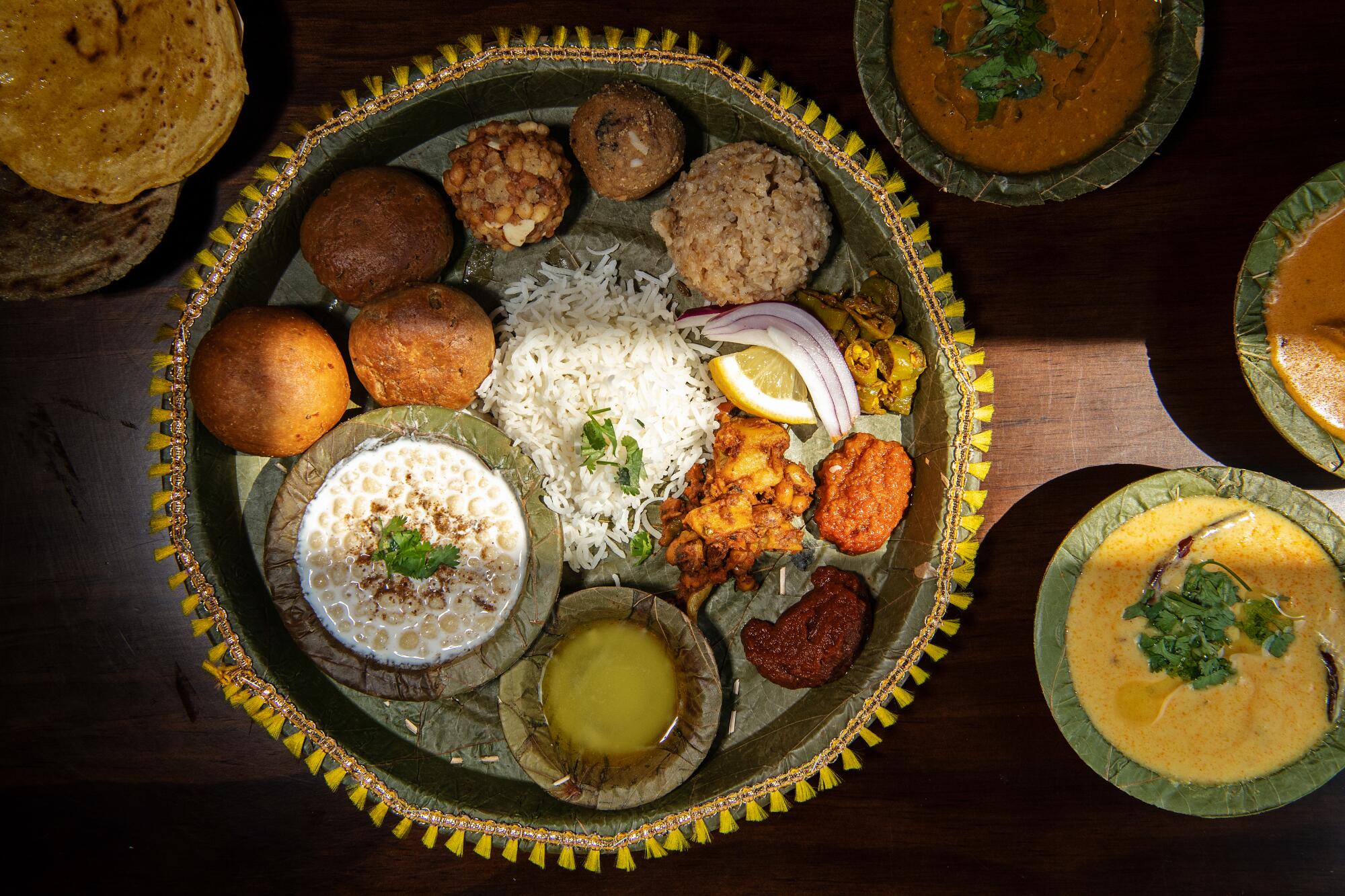
Raghavan Iyer, the prolific cookbook author who died in March, has a recipe for gatte ki sabji in his masterwork tome “660 Curries.” The headnote speaks to Rajasthan’s culinary character. “Reliance on dried legumes, flours, milk and dairy products is the norm, with vegetables being a scarcity, confined to a short growing season,” he writes. “Rajasthan’s cuisine, like its people’s love for the arts, colorful jewelry and clothing, reflects a culture that has triumphed … over the challenges of a difficult topography.”
Located in the old Sunset Foot Clinic space, the individualism of Pijja Palace is welcome on many levels.
Part of the cooking’s great achievement, so vivid in the hands of the Dwivedis, is how the interplays of acid and nuanced sourness with spice and layered textures achieve delicacy with the region’s indigenous ingredients. How exhilarating for these distinctive flavors to appear on a restaurant menu in Los Angeles County.
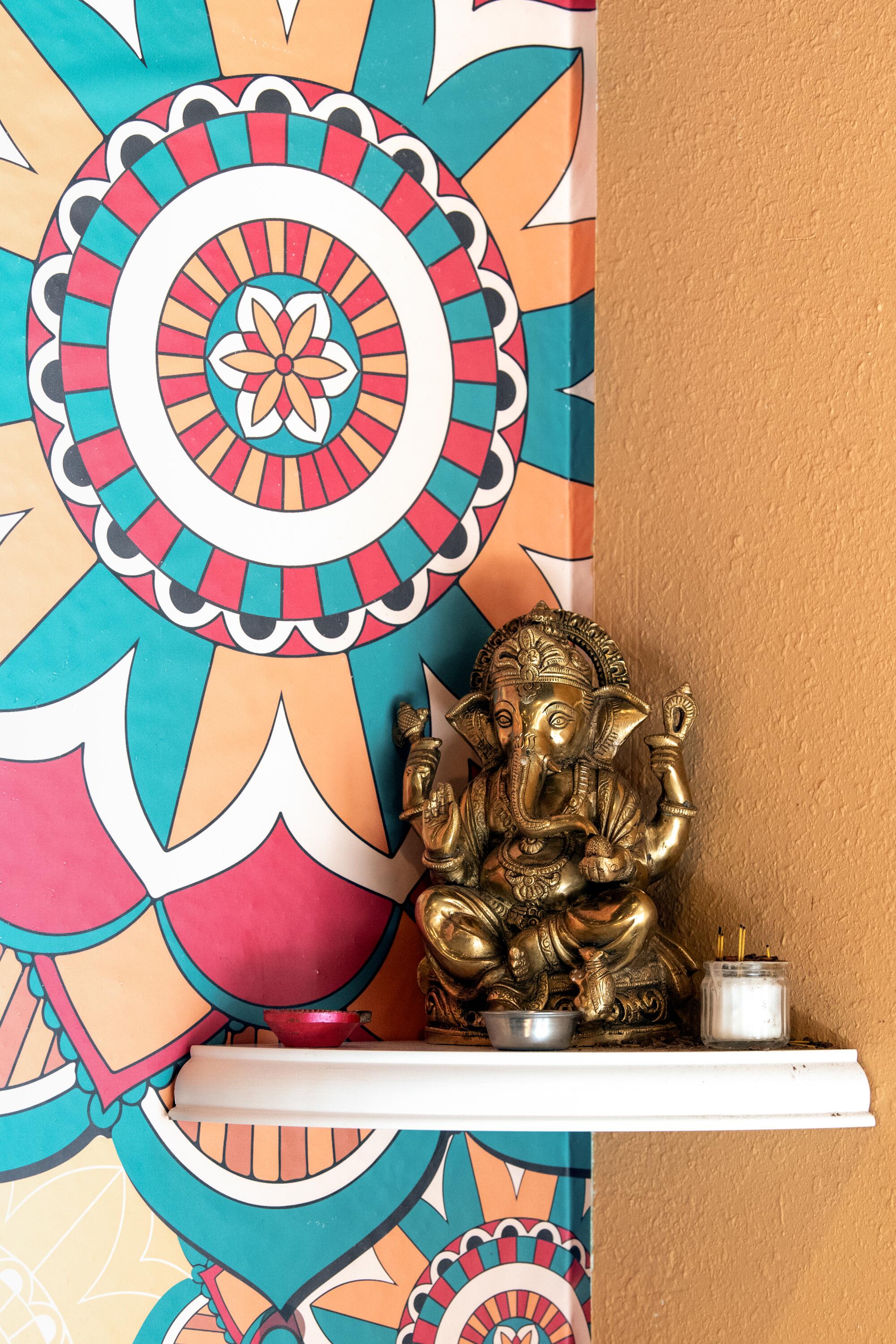
Bhookhe opened in February on a stretch of Pioneer Boulevard in Artesia already crowded with myriad expressions of Indian cuisines. An outpost of the Udupi Palace chain next door serves a dozen-plus variations on dosas and other vegetarian specialties from across South India; two snack shops, K C Paan & Chaat House and Rasraj Artesia, and restaurant Ashoka the Great, with its survey of kormas, saags and other richer, northern-style curries, sit across the street.
Half a block north is a favorite, Rajdhani, where Ranjan Patel composes her daily-changing Gujarati-style thalis on round metal trays (though cool, thick, saffron-scented shrikhand is always the choice for dessert). One u-shaped shopping center a little farther up houses Podi Dosa, another standout that specializes in dishes from Andhra Pradesh; look for its regional variation of dosa, sprinkled with powdered chiles and spices, made crackly-edged and plush from green moong batter, with smooth peanut chutney on the side.
Four life stories, two pop-ups, and regional Mexican and Indian flavors unite deliciously at this new taqueria on 3rd Street in Los Angeles.
Pinning Rajasthani cuisine on Artesia’s map instantly established a sense of place for Bhookhe. Anshul and his family previously had a company that manufactured gemstone countertops, he told me in an interview. The business fell apart during the pandemic, and he and Pooja asked themselves what they might do next.
“Both our families taught us how to cook, how to take care of ourselves, from an early age,” Anshul said. “We thought, ‘Let’s try a restaurant.’”
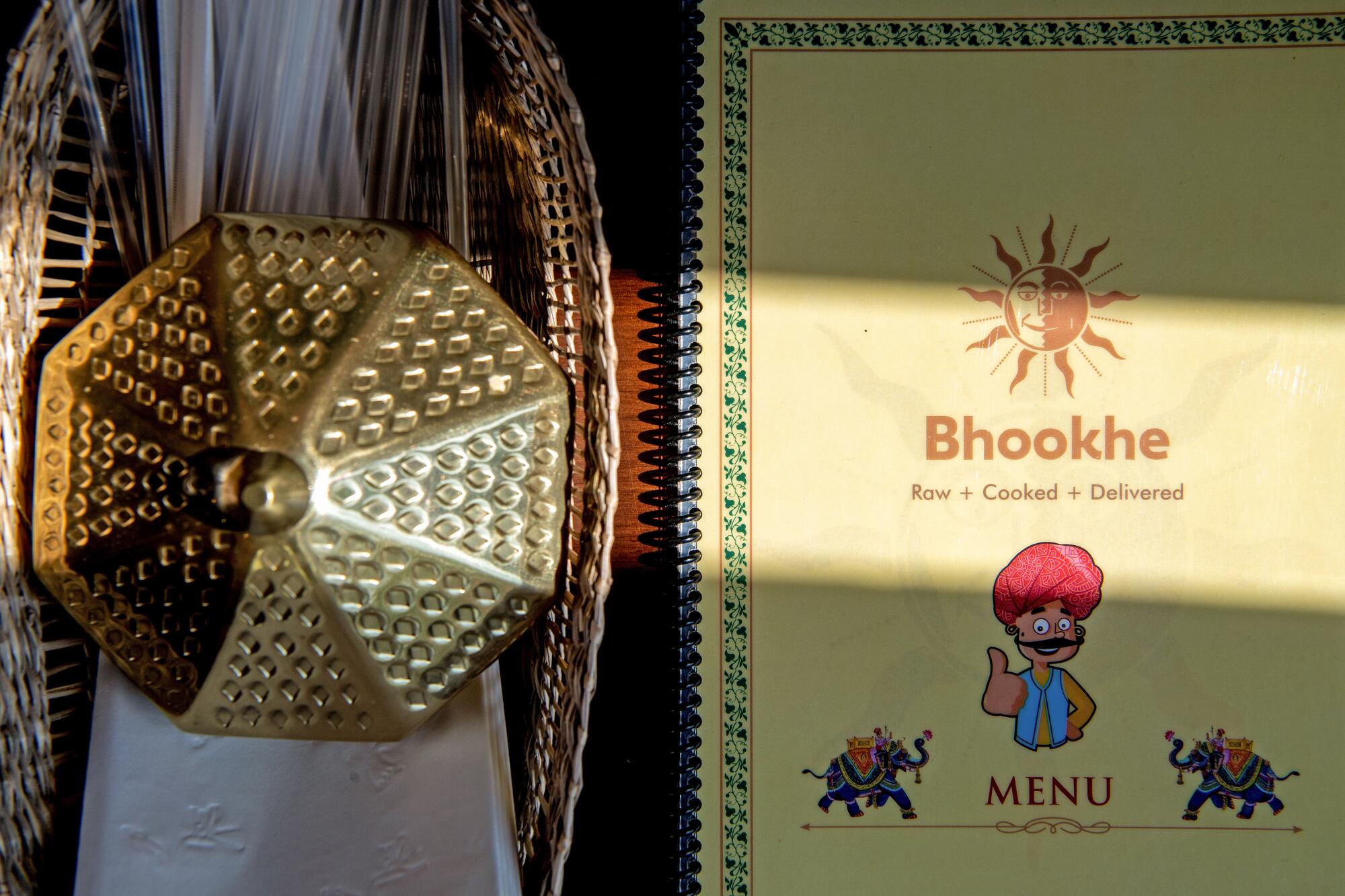
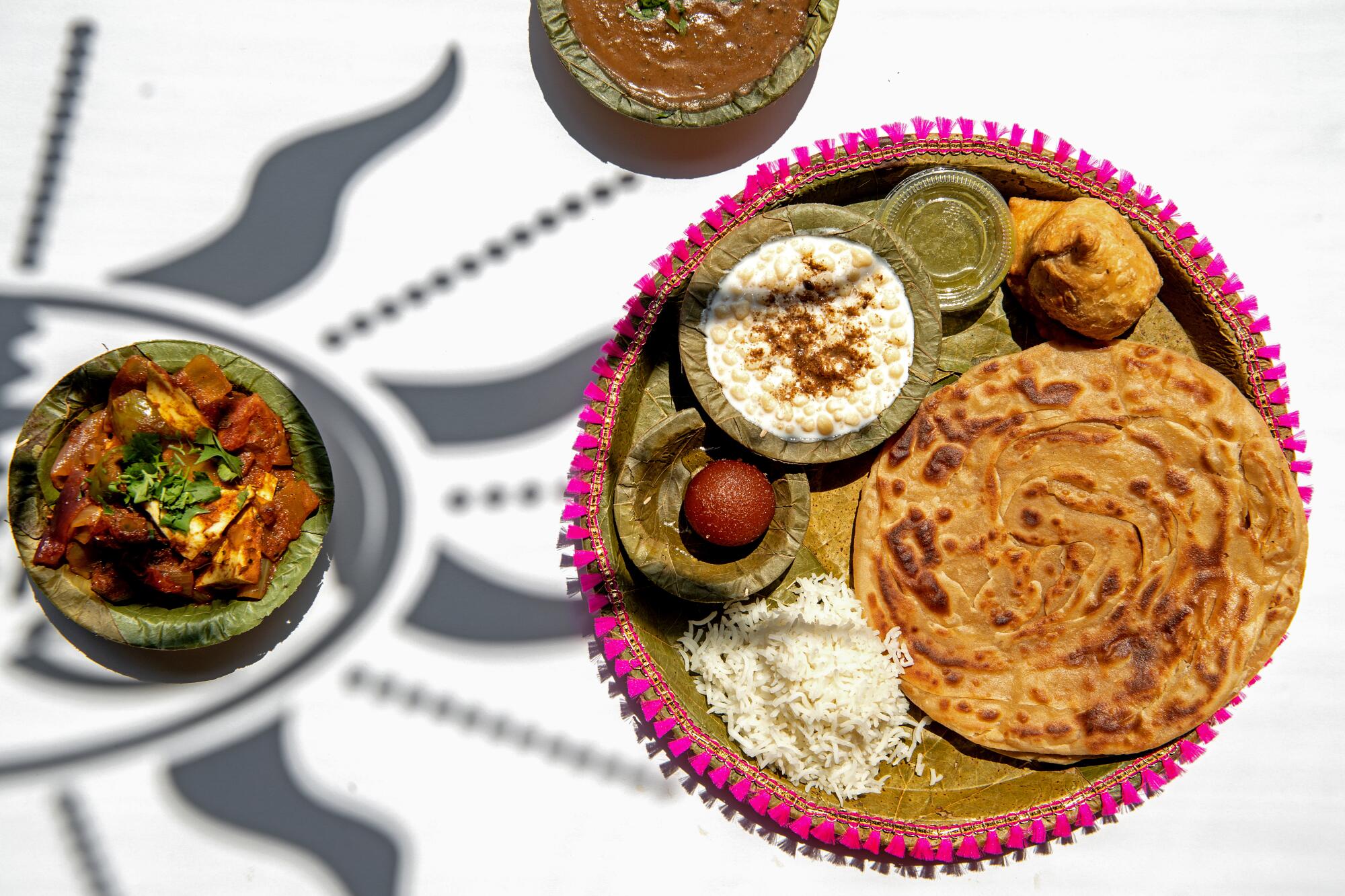
He’s noted that diners from the local Indian American community, encompassing families with ties to every corner of the subcontinent, have shown up curious about the specificity of the couple’s food. The kitchen revolves some dishes on the maharaja thali, particularly sabzis (sauceless spiced vegetables), to keep return customers’ interest piqued.
If I’m dining with at least one other person, a thali will be in the mix. It’s the fastest immersion into the Bhookhe ethos. It’s also a shortcut for combing through a nearly 80-item menu that veers through textured, chutney-spiked chaat and puri variations and other pan-regional snacks; curries, including a smattering of North Indian vegetarian classics like palak paneer, and an excellent take on malai kofta in densely rich tomato-cream sauce; appetizers, breads, sweets and beverages.
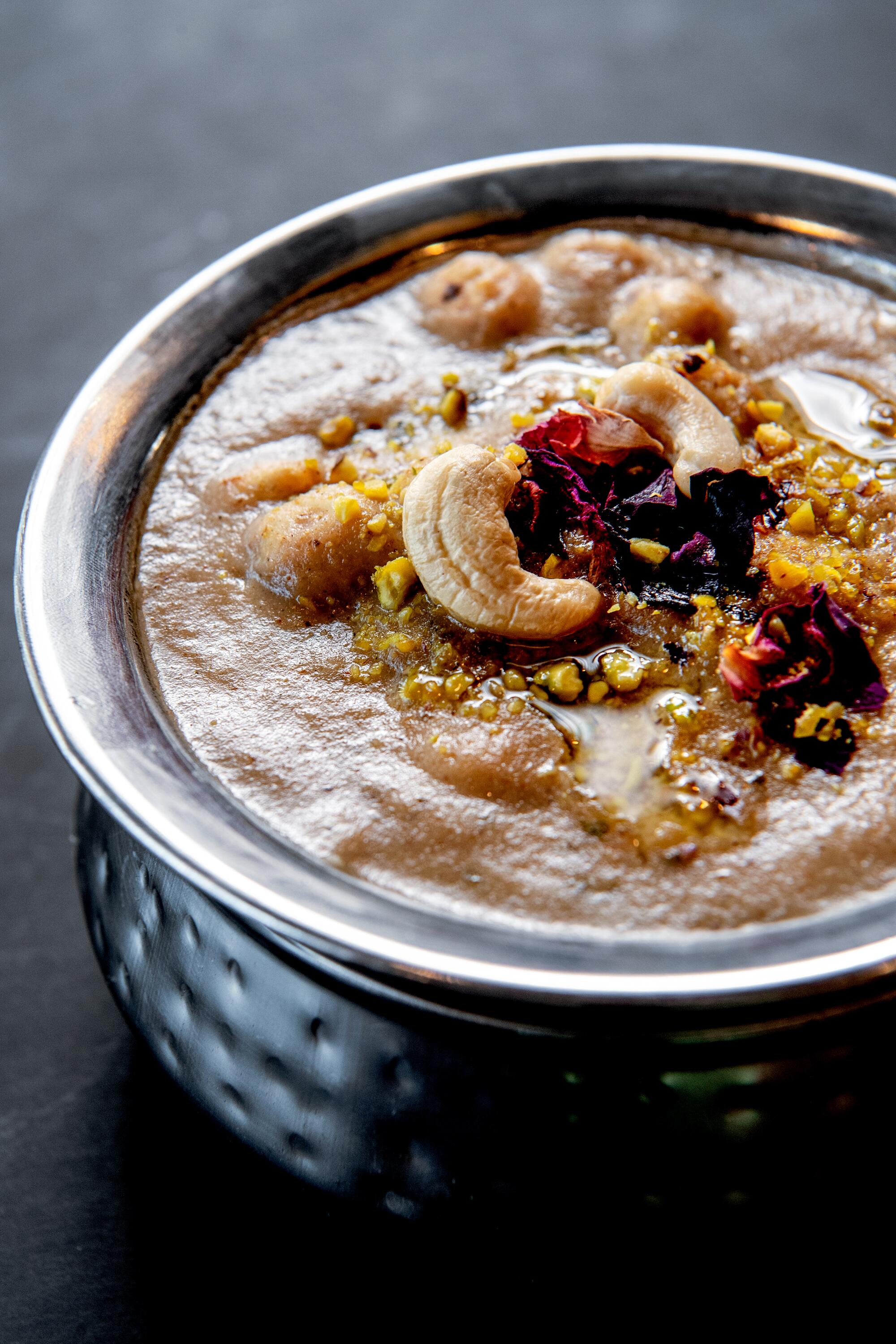
I’m here to zero in on Rajasthani paragons. To start: mirchi vada, green chile fritters filled with spiced potatoes and fried in chickpea batter for a mellow, golden crispness. One curry centers around makhana, dried lotus seeds that are also known as fox nut. They bathe in a silky, sweetly spiced base of milk and cream; fish out the cashews at the bottom of the pan for a study in crunch alongside the makhana, and save the gravy for dunking the crusty bati.
Sev tamatar ki sabji, which crosses over into Gujarati traditions as well (Gujarat is a neighbor along Rajasthan’s more fertile southwestern border), is a dish of tomatoes simmered down and thickened, and then garnished with squiggly sev. Pooja incorporates dried coconut, a less common addition, and with the chickpea noodles it gives the sabzi a pleasant, mulchy density.
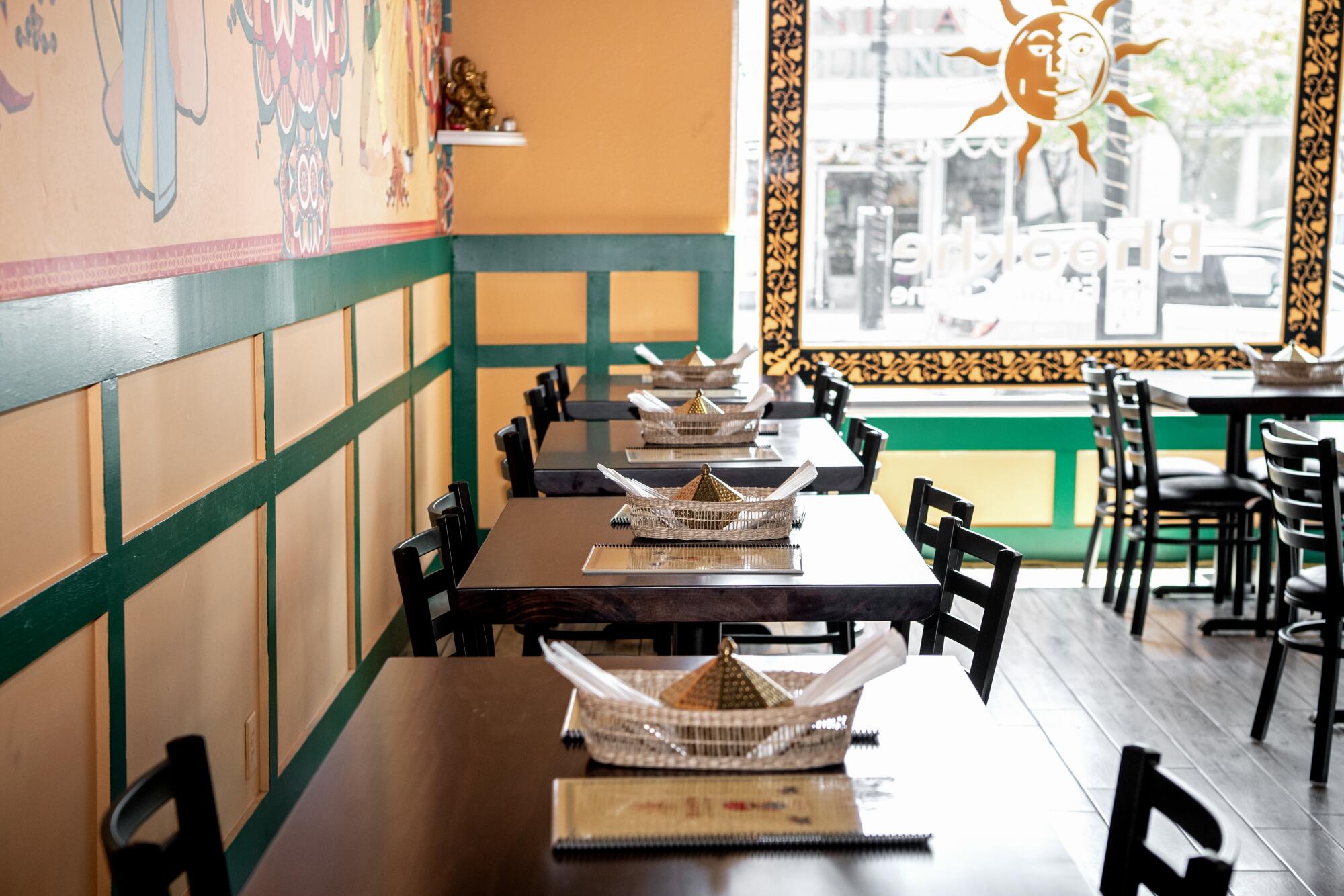
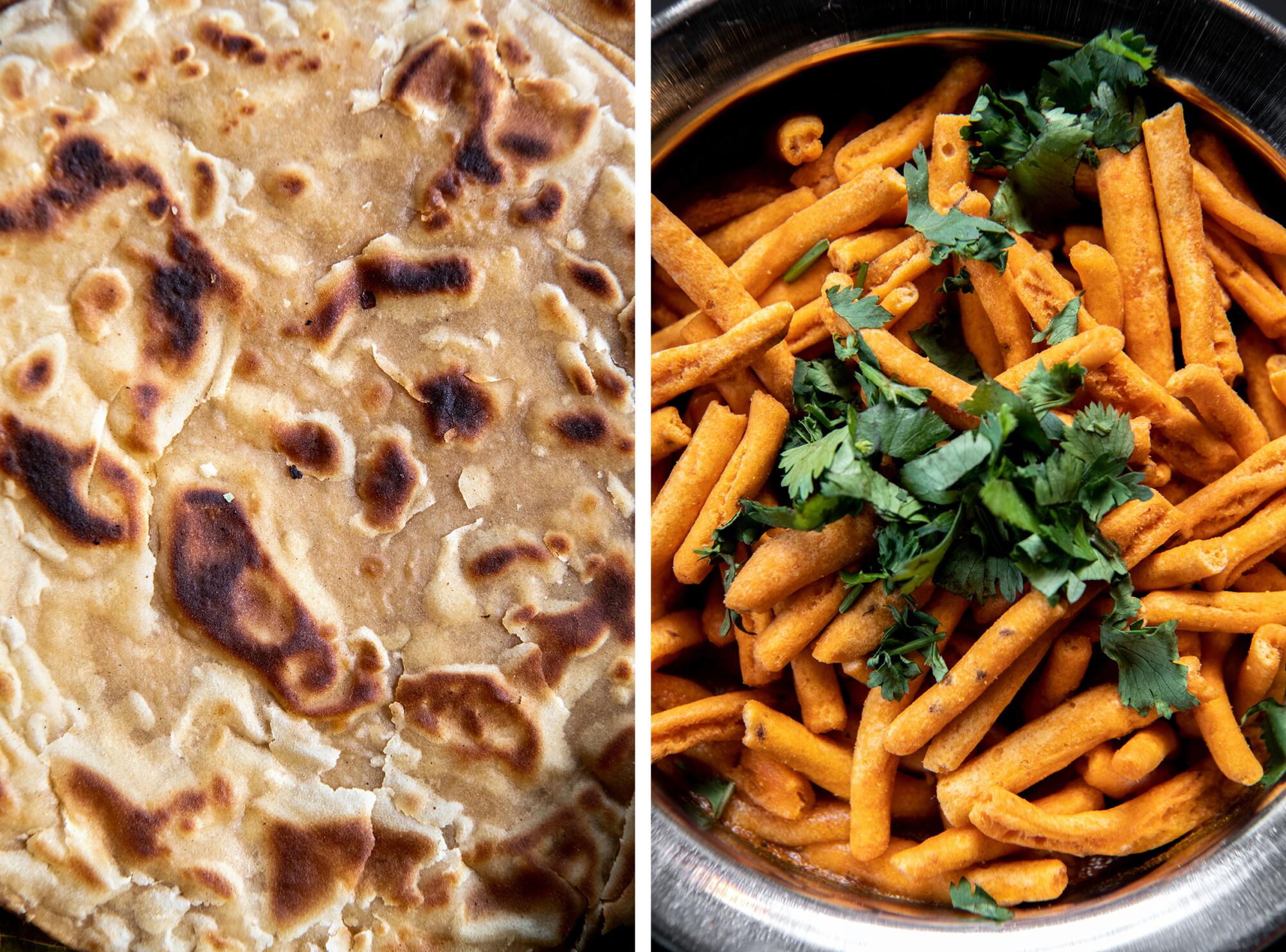
The staff number few and can be overwhelmed when they’re racing to serve a full room; patience is rewarded by food that usually arrives at an efficient pace. Whenever I flag someone down to order dessert and ask for a recommendation, I’m inevitably pointed to rabri ghevar. These small fried discs resemble doughnuts in shape, though rather than cakey they’re lacy and honeycombed, and finished with a cardamom-scented milk glaze sprinkled with pistachios and edible rose petals.
The best new restaurants and bars to try in L.A. this month include a tiki bar in Marina del Rey, mariscos in Frogtown and a Beverly Grove restaurant that marries Mexican and Indian flavors.
The thali does include a couple of tiny simple sweets, but rabri ghevar makes a far more charismatic, complexly flavored statement for closing a meal. Eat them fast, before they go soggy. And before you feel someone’s glare burrowing into your back. They’re ready for your table, and for their own rare-to-L.A. Rajasthani feast.
Bhookhe
18633 Pioneer Blvd., Artesia, (562) 523-0589, bhookhe.business.site
Prices: Starters and snacks $6.50-$15.60, curries $14.30-$19.50, thalis $23.40-$29.90, sweets $14.30-$19.50
Details: Open 10:30 a.m.-9 p.m. Tuesday-Sunday. No alcohol. Street parking.
Recommended dishes: Maharaja thali, mirchi vada, makhana curry, sev tamatar ki sabji, rabri ghevar
More to Read
Eat your way across L.A.
Get our weekly Tasting Notes newsletter for reviews, news and more.
You may occasionally receive promotional content from the Los Angeles Times.
